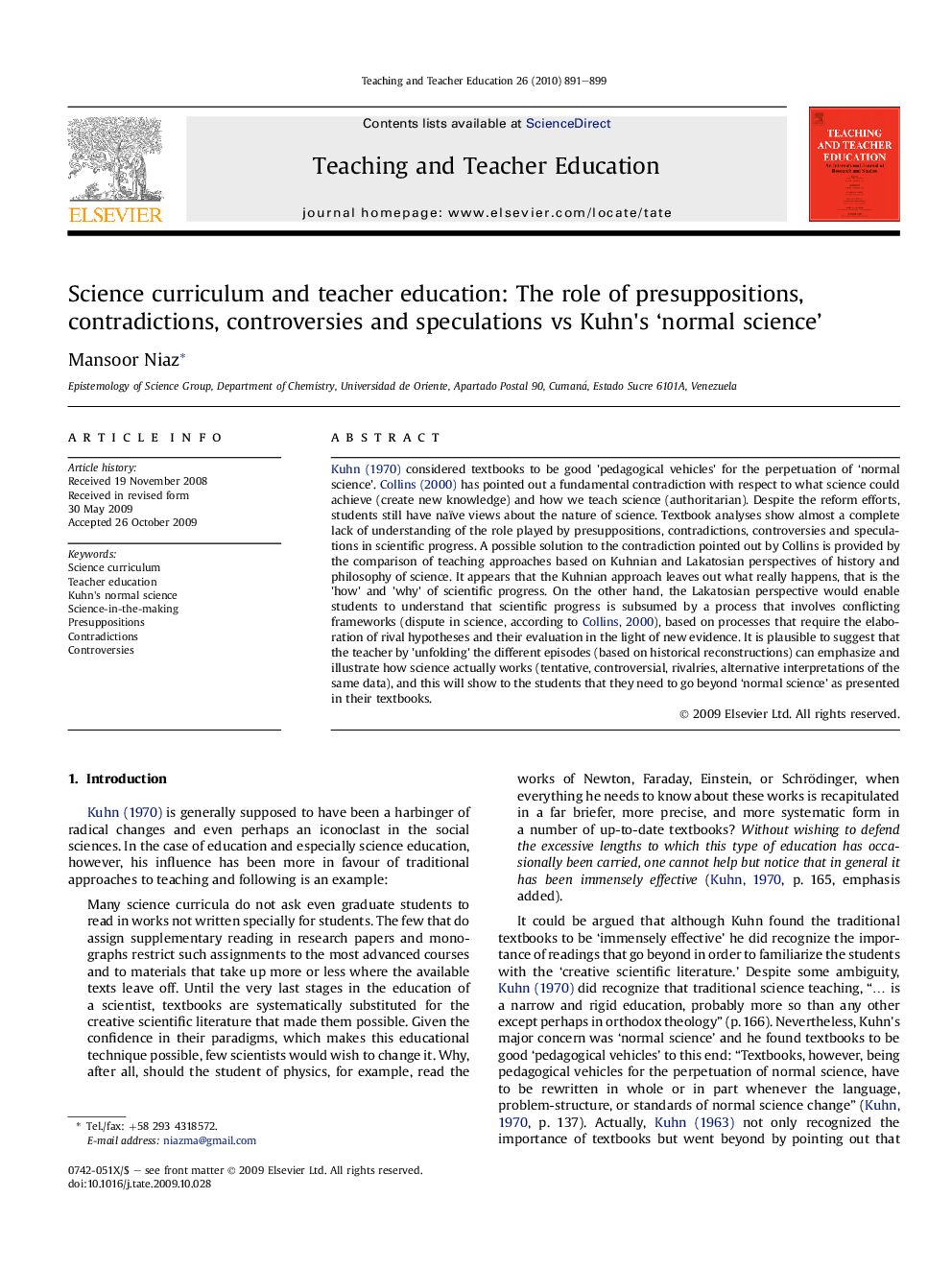| Article ID | Journal | Published Year | Pages | File Type |
|---|---|---|---|---|
| 374528 | Teaching and Teacher Education | 2010 | 9 Pages |
Kuhn (1970) considered textbooks to be good 'pedagogical vehicles' for the perpetuation of ‘normal science’. Collins (2000) has pointed out a fundamental contradiction with respect to what science could achieve (create new knowledge) and how we teach science (authoritarian). Despite the reform efforts, students still have naïve views about the nature of science. Textbook analyses show almost a complete lack of understanding of the role played by presuppositions, contradictions, controversies and speculations in scientific progress. A possible solution to the contradiction pointed out by Collins is provided by the comparison of teaching approaches based on Kuhnian and Lakatosian perspectives of history and philosophy of science. It appears that the Kuhnian approach leaves out what really happens, that is the 'how' and 'why' of scientific progress. On the other hand, the Lakatosian perspective would enable students to understand that scientific progress is subsumed by a process that involves conflicting frameworks (dispute in science, according to Collins, 2000), based on processes that require the elaboration of rival hypotheses and their evaluation in the light of new evidence. It is plausible to suggest that the teacher by 'unfolding' the different episodes (based on historical reconstructions) can emphasize and illustrate how science actually works (tentative, controversial, rivalries, alternative interpretations of the same data), and this will show to the students that they need to go beyond ‘normal science’ as presented in their textbooks.
